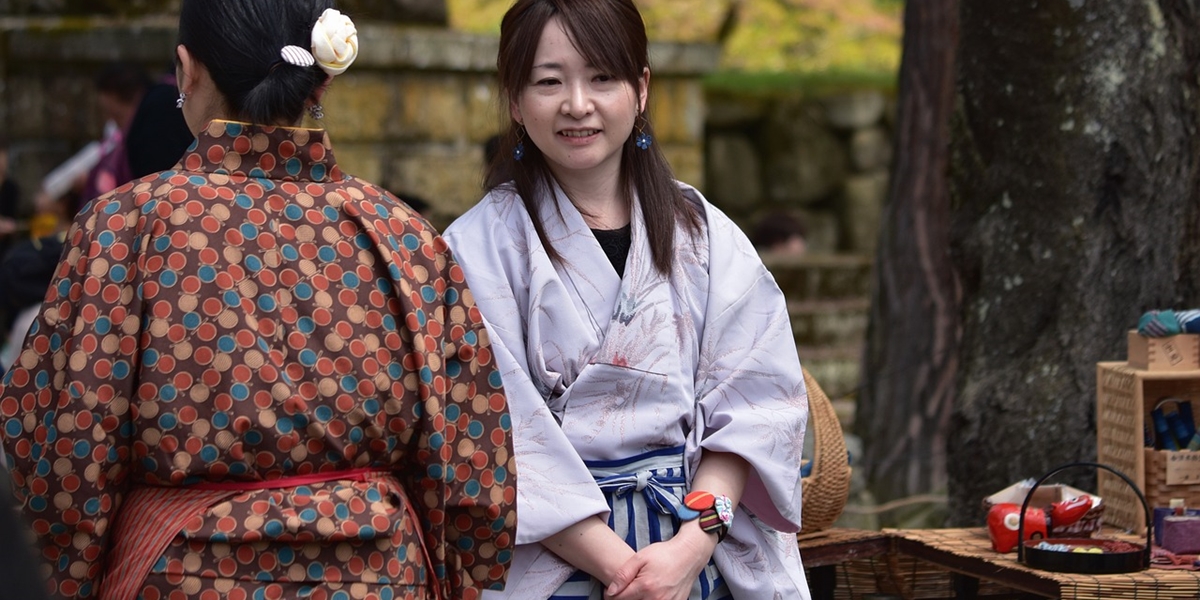7 Meanings of Toothache Dreams, Believed to Carry Hidden Meanings from the Subconscious
Curious about what the true explanation of toothache dream meanings is? To find out, just take a look at the following review.

Kapanlagi.com - In Japanese culture, language indeed plays an important role in depicting social structure and daily life. One interesting aspect is the vocabulary surrounding family and the following Japanese language for housewives.
This article will thoroughly discuss Japanese terms, especially the Japanese language for housewives, as well as explore various other vocabulary related to family life in Japan. This will enrich our understanding of the Japanese language.
Well, for those of you who are learning Japanese. Here is the Japanese language for housewives complete with other family vocabulary. Let’s check it out, KLovers!

Illustration (credit: pixabay.com)
The Japanese language term for housewife is "Shufu". This term consists of two kanji characters: "shu", which means "main" or "head", and "fu", which means "woman" or "wife". When combined, this word literally means "main woman" in the context of a household. The concept of shufu has deep roots in traditional Japanese culture, where the role of women as homemakers is highly respected.
A shufu is typically responsible for various household tasks, including cooking, cleaning, taking care of children, and managing the family finances. Although this role is still common in modern Japan, there has been a significant social shift in recent decades. Today, the term shufu in Japanese can refer to various situations.
There is "sengyou shufu", which means full-time housewife, and "hataraku shufu", which describes women who combine outside work with household responsibilities. As social and economic norms change, more women in Japan are choosing to pursue careers while still managing households. This has led to an evolution in the use and understanding of shufu.
It is important to note that although this term is still commonly used, gender roles in Japan continue to evolve. In fact, there are now even more men who are starting to participate more actively in household chores and child-rearing, challenging traditional stereotypes about the role of shufu or wife in Japanese language. Despite these changes, the term shufu remains an important part of the Japanese vocabulary.

Illustration (credit: pixabay.com)
In addition to knowing the Japanese language of housewives, KLovers can also learn other family vocabulary in Japanese. This list covers various aspects of family and household life in Japanese, ranging from family members to rooms in the house and household activities. Here is the list:
1. Kazoku - Family
2. Otto - Husband
3. Tsuma - Wife
4. Kodomo - Children
5. Musuko - Son
6.Musume - Daughter
7.Chichi - Father
8.Haha - Mother
9.Sofu - Grandfather
10.Sobo - Grandmother
11.Kyoudai - Siblings (brothers and sisters)
12. Shimai - Sister
13.Kaji - Housework
14.Ryouri - Cooking
15.Souji - Cleaning
16.Sentaku - Doing laundry
17.Ikuji - Childcare
18.Kaimono - Shopping
19. Kakei - Household finances
20.Juutaku - House (residence)
21.Ima - Living room
22.Shinshitsu - Bedroom
23.Daidokoro - Kitchen
24.Furo - Bathroom
25.Genkan - Entrance of the house.
26. Shinseki - Relatives
27.Oji - Uncle
28.Oba - Aunt
29.Itoko - Cousin
30.Giri no kazoku - In-laws
31.Youshi - Adopted child
32.Doukyo - Living together
33. Kagu - Home furniture
34.Reizouko - Refrigerator
35.Sentakuki - Washing machine
36.Denshi renji - Microwave
37.Soujiki - Vacuum cleaner
38.Shokki - Dining utensils
39.Futon - Traditional Japanese mattress
40. Oshiire - Built-in closet
41.Gomi dashi - Taking out the trash
42.Niwa - Yard
43.Petto - Pet
44.Kinjo tsukiai - Neighborly relations
45.Yachin - Rent
46.Roon - Loan (for example, for a house)
47. Kounetsuhi - Utility costs for electricity and gas
48.Shokuhi - Food expenses
49.Chokin - Savings
50.Kazoku kaigi - Family meeting.
These are explanations of Japanese vocabulary for housewives complete with other vocabulary. Understanding this vocabulary will enrich KLovers' knowledge about Japanese culture and societal values.
(kpl/dhm)
Cobain For You Page (FYP) Yang kamu suka ada di sini,
lihat isinya
Curious about what the true explanation of toothache dream meanings is? To find out, just take a look at the following review.
Curious about what the explanation of urinating dreams means? To find out, just take a look at the explanation below.
Contract marriage dramas have their own charm that captivates many viewers. These stories often combine elements of romance, comedy, and complicated conflicts.
Curious about the explanation of the meaning of twitching in the upper middle lip according to Javanese primbon? To find out, just read the following review.
So, what is the explanation of the meaning of left lower lip twitching according to Javanese primbon? To find out, just read the following review.
Curious about which underrated dramas are exciting and should not be missed by K-drama lovers? To find out, just check out the list of recommendations and brief reviews below.
Among the 16 MBTI personality types, there are some that are known to have angelic hearts because they like to do good and care for others. Curious about which MBTI types those are? To find out, just check out the list and brief explanations below.
In this article, Kapanlagi will review some of the highest-paid Korean actors and actresses for their latest dramas. Here is a list of the highest-paid Korean actors and actresses in the dramas they starred in from 2023 to 2024. Let's check it out, KLovers!
There are several characteristics of Doyoung that prove that the vocalist is an ISFJ MBTI. Curious about what they are? To find out, just check out the following review.
With a perfect blend of thrilling action, intriguing mystery, and a touch of classic Korean drama. Let's take a look at the synopsis of the Korean drama THE TYRANT complete with the cast list. Check it out, KLovers!
The film FAST AND FURIOUS 6 from 2013 offers unforgettable entertainment for its fans. For those curious about the story, here is the complete synopsis of the film FAST AND FURIOUS 6 along with the cast list. Let's check it out, KLovers!
Curious about the explanation of the meaning of dreaming about gathering with friends? To find out, just take a look at the following review.